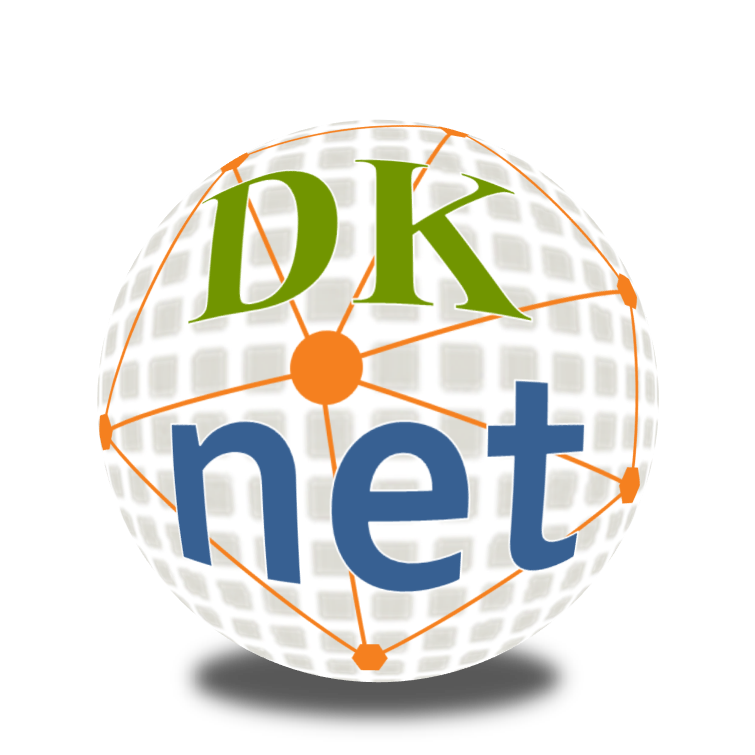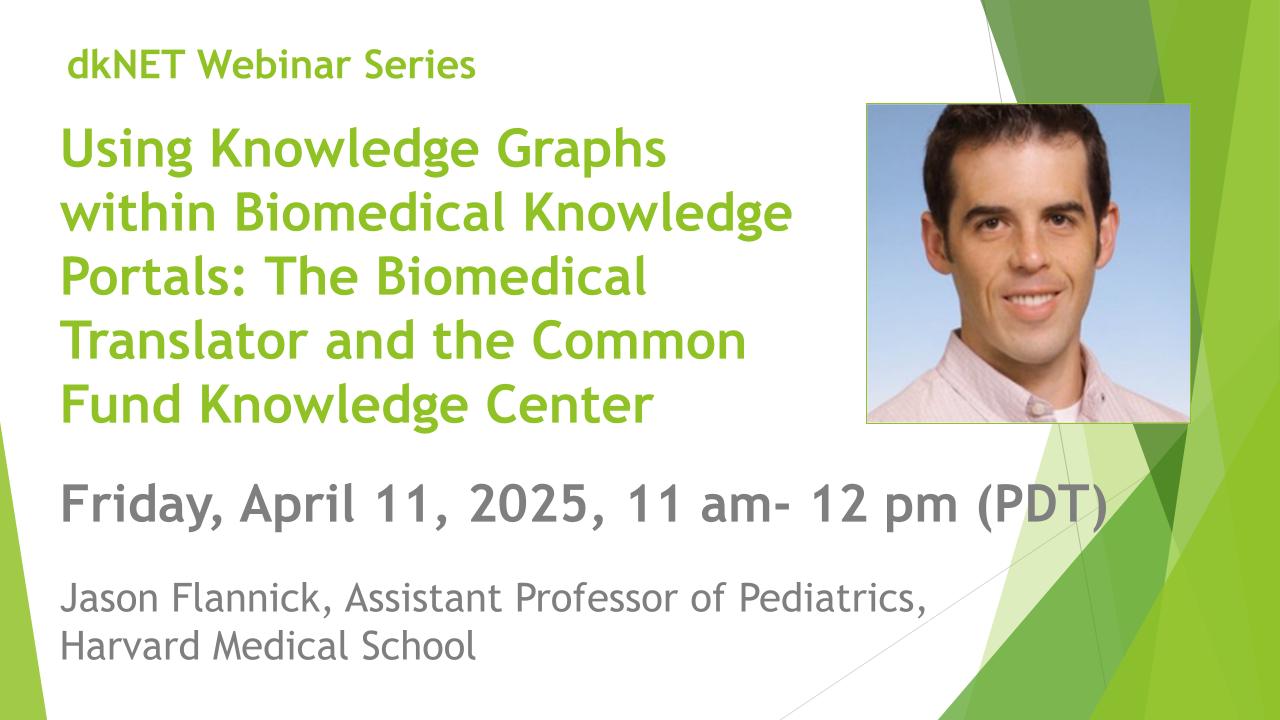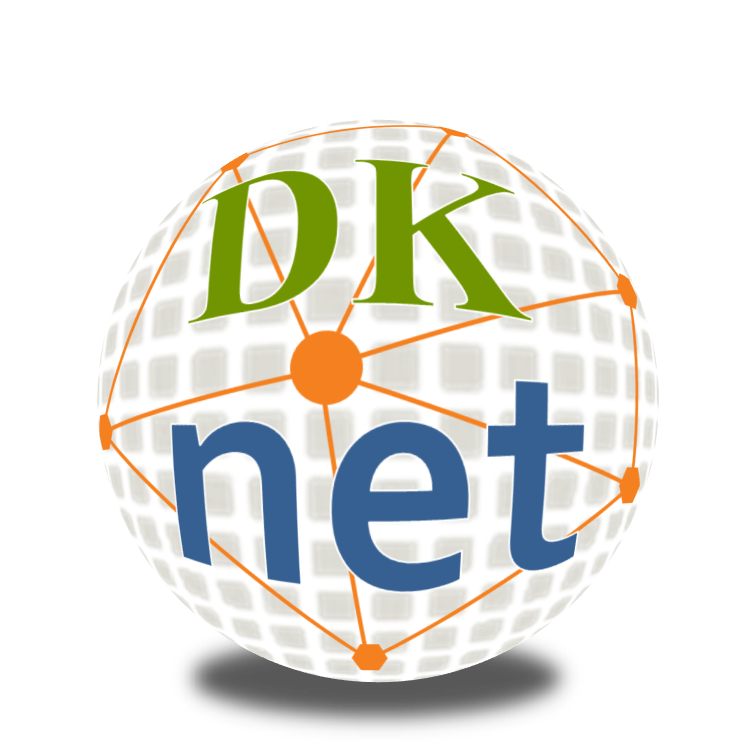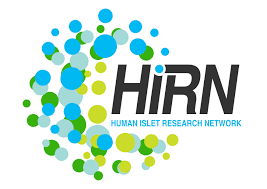Leaving Community
Are you sure you want to leave this community? Leaving the community will revoke any permissions you have been granted in this community.
dkNET community events and announcements in May, 2023
Dear dkNET Community,
dkNET provides updates on activities of interest to the NIDDK-supported community. You could keep up to date on these activities through our Twitter feed @dkNET_info, through our Community Calendar, or through dkNET e-mail list. If you have an event or funding opportunities you'd like to advertise, please contact us info_at_dknet.org.
dkNET News
Recordings and Slides are Now Available: (1) dkNET Office Hours - "Are You Ready for 2023: New NIH Data Management and Sharing Mandates" presented by Dr. Jeffrey Grethe, dkNET co-PI and expert on Data Management and Sharing, and Dr. Rebecca Rodriguez, Repository Program Director at NIDDK, Ms. Reaya Reuss, Chief of Staff to the Deputy Director at NIDDK, and the support team members from the NIDDK Central Repository on Mar. 3, 2023: Slides; Recording. (2) “Estimating Relative Beta-Cell Function During Continuous Glucose Monitoring And Its Clinical Applications” on Mar. 10, 2023: Slides; Recording. (3) “Single Molecule Spatial Transcriptomics: Interpreting The Spatial Expression Of RNAs From FISH Images” on Apr. 21, 2023: Recording.
FAQ webpage for the Data Management and Sharing Plan Office Hours is released! We have updated the Research Data Management Overview webpage with more resources, including websites, webinars, and NIH mandates to assist researchers in learning more about complying with data management and sharing mandates requirements. Additionally, a new FAQ webpage has also been added to provide more detailed answers to common questions about data management and sharing plans.
Deadline Extended! The 2023 dkNET Summer of Data Student Program is a 6-week program providing an opportunity for students (high school to Masters/ PhD graduate) to learn rigor and reproducibility practices, FAIR data management, & dkNET resources and apply them to their research projects! This program requires that students be involved with an NIDDK-related research lab during the summer of 2023. dkNET offers limited scholarships to student applicants. Application due date: May 8, 2023 (extended).
Events in May 2023
May. 01-02, 2023
NIDDK Workshop: Fifth Artificial Pancreas Workshop "Enabling Fully Automation, Access, and Adoption
The purpose of this workshop is to discuss in a multi-disciplinary forum, the current and potential future challenges for the development, testing, accessibility and adoption of fully automated diabetes management technologies and their components. Topics to be discussed include:
- Lessons learned from Clinical Trials. Clinical testing modalities for real world translatability.
- Discussion of current state of interoperability and perspectives for the future.
- Adaptation of systems throughout the life span and to special populations.
- Potential benefits of multihormone closed loop systems and the use of adjuvant therapies.
- Artificial intelligence/ ML and integration strategies for personalized systems.
- Technical challenges and potential solutions in glucose sensing and more physiological and durable insulin/pancreatic hormones delivery.
- Human psychosocial factors, quality of life, ethical considerations and health disparities in the adoption and access to these technologies.
- Prospective areas of research emphasis to accelerate the availability of wearable, affordable, accessible, and more user-friendly systems for individuals with diabetes”
This event has been organized in collaboration with the Diabetes Technology Society, the Helmsley Charitable Trust, the JDRF, and the U.S. Food and Drug Administration.
Location: Bethesda, MD, USA
More information: https://www.niddk.nih.gov/news/meetings-workshops/2023/fifth-artificial-pancreas-workshop
May. 01-04, 2023
Keystone Symposia: Type 2 Diabetes: Understanding its Early Drivers and the Road to Therapeutics
Location: Palm Springs, CA, USA
More information: https://www.keystonesymposia.org/conferences/conference-listing/meeting?eventid=6803
May. 02, 2023
HIRN Webinar "Bifunctional Small Molecules: From PROTACs to Molecular Glues"
You are invited to a webinar hosted by the Human Islet Research Network (HIRN) on “Bifunctional Small Molecules: From PROTACs to Molecular Glues". Presentations by: Bridget Wagner, PhD, Broad Institute and Amit Choudhary, PhD, Broad Institute.Topics to be discussed: (1) Describe the different types of bifunctional molecules in drug discovery and development (2) Discuss PROTACs and their use in targeted protein degradation (3) Provide an example of bifunctional molecules that target cellular functions (e.g. phosphorylation) Date: Tuesday, May 2, 2023. Time: 12:00 PM Eastern | 9:00 AM Pacific. Duration: 1 hour.
More information: https://tinyurl.com/HIRN-May-2023
May. 09-10, 2023
NIDDK Workshop: Advances in Aging, Immunity, and Chronic Inflammatory Diseases
Location: Bethesda, MD, USA
More information: https://web.cvent.com/event/900ef59c-235f-484b-b10e-93ed2a22690a/summary
May. 12, 2023
Data Sharing and Reuse Seminar: The Diabetes Data and Hypothesis Hub (D2H2) and the Playbook Partnership Workflow Builder (PPWB): Bioinformatics Tools for Hypothesis Generation via Data Integration
This seminar will discuss two new interactive bioinformatics software tools that integrate knowledge from many NIH funded and other key resources for hypothesis generation. The Diabetes Data and Hypothesis Hub (D2H2) is a platform that integrates tools and datasets related to diabetes research into one integrative platform. The Playbook Partnership Workflow Builder (PPWB) is a system that enables novice users to created bioinformatics workflows by exploring a network of distributed but connect microservices. These two new tools will be demonstrated through a variety of use cases with applications that prioritize personalized drugs and targets for kidney disease, diabetes, and pan-cancer. This project is funded by the National Institute of Diabetes and Digestive and Kidney Diseases (NIDDK).
More information: https://datascience.nih.gov/news/may-data-sharing-and-reuse-seminar-2023
May. 12, 2023
dkNET Webinar: Integrating Regulatory Maternal Obesity Programs Controlling Adipose Tissue Cellular Complexity
dkNET New Investigator Pilot Program in Bioinformatics Awardee Webinar Series
Join dkNET Webinar on Friday, May 12, 2023, 11 am - 12 pm PDT
Abstract
The unique capacity of inguinal white adipose tissue (iWAT) to brown has emerged as a promising therapeutic approach for treating obesity and its adverse complications. Both white and beige adipose arise from a subpopulation of perivascular adipocyte progenitor cells. However, the early signaling events controlling ACP differentiation to beige adipocytes are still unknown.
To uncover the stromal cells heterogeneity during beige adipogenesis, we performed a single cell RNA-sequencing of iWAT under control conditions, treatment with beta3-adrenergic receptor (ADRB3) agonist, or exposure to cold. ScRNA-seq revealed the landscape of APCs undergoing beige adipogenesis. We identified a distinct subpopulation of APCs expressing SM22 (Smooth Muscle Protein 22-Alpha), that is predicated in silico to give rise to multiple cell types composing adipose depot. Using SM22 lineage tracing mouse model, we found that SM22+ APCs accumulate in response to cold and ?3-adrenergic stimulations but only cold-induced their differentiation to beige adipocytes. Further investigations revealed that beige adipogenesis is a multi-step signaling process involving paracrine communication between mature adipocytes and vascular progenitors. This process involves (1) ADRB3 activation of adipocytes, followed by (2) lipids release by mature adipocytes (3) that induce a metabolic switch and ADRB1 expression in SM22+ APCs. Activation of ADRB1 by catecholamine released under cold exposure promotes primed APCs differentiation to beige adipocytes.Altogether, our data uncovered early steps necessary to promote beige adipogenesis.
Presenter: Nabil Rabhi, PhD. Instructor, Department of Biochemistry, Boston University School of Medicine
More information: https://dknet.org/about/blog/2612
May. 19, 2023
dkNET Webinar: Heterogeneity Of Single Cells Obtained From Peripheral Blood Mononuclear Cells Collected From Youth With Recent Onset Type 1 Diabetes
dkNET New Investigator Pilot Program in Bioinformatics Awardee Webinar Series
Join dkNET Webinar on Friday, May 19, 2023, 11 am - 12 pm PDT
Abstract
Type 1 diabetes (T1D) is an immune-mediated disease that results in insulin insufficiency and affects 0.3% of the population, including both children and adults. To support clinical trial efforts, there is an urgent need to develop reliable biomarkers capable of predicting T1D risk and guiding therapeutic interventions. Recently, whole blood bulk RNA sequencing has been used to guide T1D clinical trial design and assess response to disease modifying interventions. While the use of bulk RNA sequencing is cost-effective, these datasets provide limited information about cell specific gene expression changes. Here, we aimed to apply computational strategies to deconvolute cell type composition using cell specific gene expression references. Single-cell RNA sequencing (scRNA-seq) was conducted to profile peripheral blood mononuclear cells obtained from youth within recent T1D onset and age- and sex-matched controls and identified 31 distinct cell clusters. Using this pre-defined reference dataset, we ran computational algorithms CIBERSORTx and other deconvolution methods simultaneously to deconvolute cell proportions using public clinical trial data. We focused our initial analysis on data from the TN-20 Rituximab trial, which tested the anti-CD20 monoclonal antibody rituximab vs placebo in recent onset T1D. This talk will introduce recent advances of scRNA-seq techniques and computational deconvolution methods and demonstrate that how we apply different deconvolution approaches for secondary analysis of existing clinical trial data, in the purpose of linking cell specific immune signatures associated with drug responder status.
Presenter: Wenting Wu, PhD. Research Assistant Professor, Center for Diabetes and Metabolic Diseases, Department of Medical and Molecular Genetics, Indiana University School of Medicine
More Information: https://dknet.org/about/blog/2623
May. 22-23, 2023
NIDDK Webinar: A Scientific Workshop on Post-Dialysis Fatigue
The National Institute of Diabetes and Digestive and Kidney Diseases, National Institutes of Health calls people with kidney disease, clinicians, researchers, and the end stage kidney disease community to action on May 22–May 23, 2023, for a workshop on post-dialysis fatigue. We seek your collective expertise on identifying the scientific gaps and the opportunities to move the field forward. Registration deadline: May 21, 2023.
Location: Virtual
More information: https://www.niddk.nih.gov/news/meetings-workshops/2023/scientific-workshop-on-post-dialysis-fatigue
May. 23-27, 2023
19th IDS Congress Paris 2023
Location: Paris, France
More information: https://www.idsparis2023.com/
Funding Opportunities Information and Deadlines in May 2023
May. 08, 2023
Application Due: dkNET Summer of Data Student Program
More information: https://dknet.org/about/Summer-Program
May. 09, 2023
NIH Funding Opportunity First Available Application Due: Notice of Special Interest (NOSI): Administrative Supplements to Enhance Software Tools for Open Science
More information: https://dknet.org/about/dknetnews/2595
May. 16, 2023
Funding Opportunity Application Due Date: Notice of Special Interest (NOSI): Administrative Supplements to Support Collaborations to Improve the AI/ML-Readiness of NIH-Supported Data
More information: https://grants.nih.gov/grants/guide/notice-files/not-od-23-082.html
May. 19, 2023
NIH Funding Opportunity Letter of Intent Due: Identification and Characterization of Bioactive Microbial Metabolites for Advancing Research on Microbe-Diet-Host Interactions (R01 Clinical Trial Not Allowed)
Letter of Intent Deadline: September 20, 2021; May 20, 2022; September 20, 2022; May 19, 2023 and September 19, 2023
Application Deadline: October 20, 2021; June 22, 2022; October 20, 2022; June 22, 2023; October 19, 2023
More Information: https://grants.nih.gov/grants/guide/pa-files/par-21-253.html
May. 22, 2023
NIH Funding Opportunity Application Due: Emergency Awards: HEAL Initiative- New Innovator Award (DP2 Clinical Trial Not Allowed)
More information: https://grants.nih.gov/grants/guide/rfa-files/rfa-tr-23-011.html
May. 25, 2023
NIH Funding Opportunity Application Due: Ruth L. Kirschstein National Research Service Award (NRSA) Short-Term Institutional Research Training Grant (Parent T35)
The National Institutes of Health (NIH) will award Ruth L. Kirschstein National Research Service Award (NRSA) Short-Term Institutional Research Training Grants (T35) to eligible, domestic institutions to develop and/or enhance research training opportunities for predoctoral students interested in careers in biomedical, behavioral, or clinical research. Many NIH Institutes and Centers (ICs) use this NRSA program exclusively to support intensive, short-term research training experiences for health professional students (medical students, veterinary students, and/or students in other health-professional programs) during the summer.This program is also intended to encourage training of graduate students in the physical or quantitative sciences to pursue research careers by short-term exposure to, and involvement in, the health-related sciences. The training should be of sufficient depth to enable the trainees, upon completion of the program, to have a thorough exposure to the principles underlying the conduct of biomedical research. This Funding Opportunity Announcement (FOA) does not allow appointed Trainees to lead an independent clinical trial, but does allow them to obtain research experience in a clinical trial led by a mentor or co-mentor.
More information: https://grants.nih.gov/grants/guide/pa-files/pa-23-080.html
May. 25, 2023
NIH Funding Opportunity Application Due: Ruth L. Kirschstein National Research Service Award (NRSA) Institutional Research Training Grant (Parent T32)
The National Institutes of Health (NIH) will award Ruth L. Kirschstein National Research Service Award (NRSA) Institutional Research Training Grants (T32) to eligible, domestic institutions to develop and/or enhance predoctoral and postdoctoral research training, including short-term research training, to help ensure that a diverse and highly trained workforce is available to meet the needs of the Nation’s biomedical, behavioral, and clinical research agenda. Research training programs are expected to incorporate engaging, didactic, research, and career development elements to prepare trainees for careers that will have a significant impact on the health-related research needs of the Nation. Programs proposing only short-term predoctoral research training should not apply to this announcement, but rather to the Kirschstein-NRSA Short-Term Institutional Research Training Grant Program (T35) exclusively reserved for predoctoral, short-term research training. This Funding Opportunity Announcement (FOA) does not allow appointed Trainees to lead an independent clinical trial, but does allow them to obtain research experience in a clinical trial led by a mentor or co-mentor.
More information: https://grants.nih.gov/grants/guide/pa-files/pa-23-048.html
May. 30, 2023
NIH Funding Opportunity Application Due: NIH Common Fund Data Ecosystem (CFDE) Data Resource Center and Knowledge Center (OT2)
More information: https://commonfund.nih.gov/sites/default/files/OTA-23-004.pdf
May. 31, 2023
IIDP Funding Opportunity Application Due: IIDP Islet Award Initiative (IIDP-IAI)
More information: https://iidp.coh.org/Investigators/Islet-Award-Initiative
May. 31, 2023
Applications Deadline: Data and Technology Advancement (DATA) National Service Scholar Program
Applications are now open for the Data and Technology Advancement (DATA) National Service Scholar Program, hosted by the NIH Office of Data Science Strategy. DATA Scholars are experienced data and computer scientists and engineers looking to tackle challenging biomedical data problems with the potential for substantial public health impact.
Being a DATA Scholar requires deep experience in, and knowledge of, data and computer sciences and related fields. The program encourages transformative approaches that lead to increased efficiency, innovative research, tool development, and analytics.
This year NIDDK has one project in the program! Information Session: April 19, 2023. Application deadline: May 31, 2023.
More information: https://dknet.org/about/dknetnews/2601





